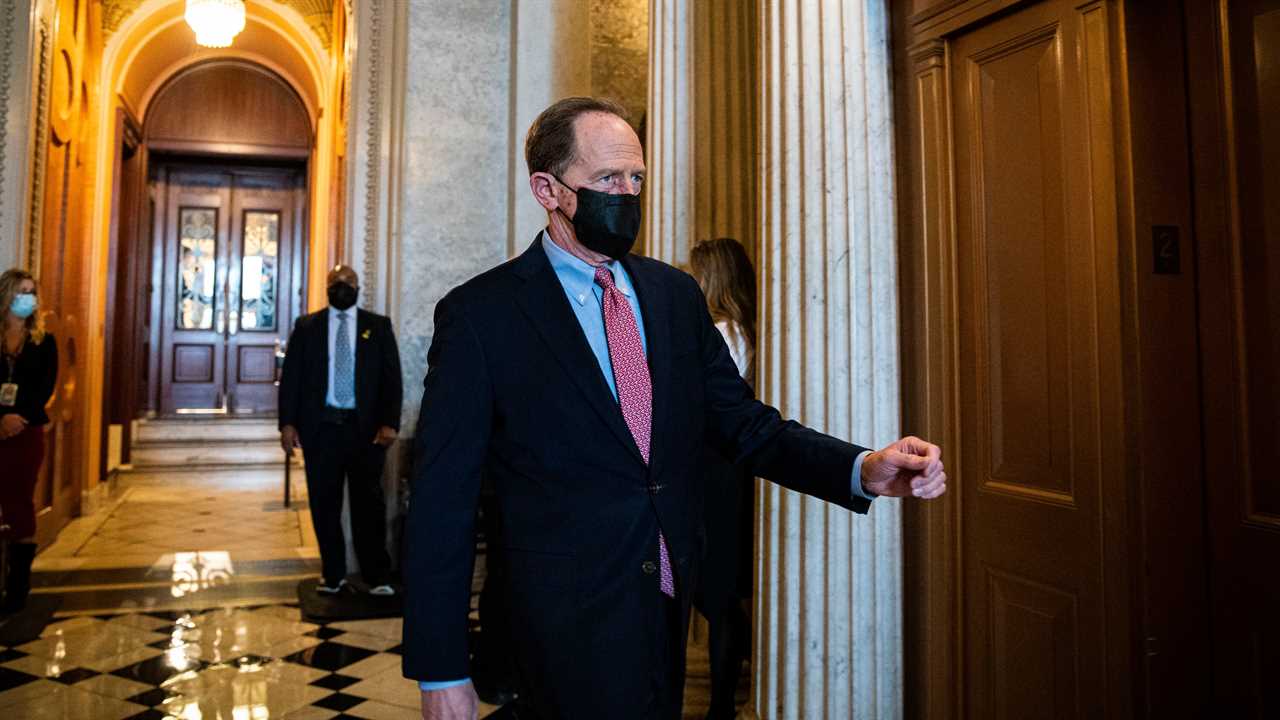
President Biden’s plans to remake the Federal Reserve by nominating five of its seven governors hit a roadblock on Tuesday as Republicans on the Senate committee that sits at the center of the confirmation process delayed a vote on the picks.
Mr. Biden has renominated Jerome H. Powell as Fed chair and has tapped Lael Brainard, a current Fed governor, as vice chair. He also has nominated the economists Lisa D. Cook and Philip N. Jefferson as governors and Sarah Bloom Raskin, a longtime Washington policymaker and lawyer, as the new vice chair for bank supervision.
All five potential officials were scheduled to face a vote before the Senate Banking Committee on Tuesday afternoon, which would have put them on track for a confirmation vote before the full Senate if they passed.
But Senator Patrick J. Toomey, Republican of Pennsylvania, blocked the process over concerns about Ms. Raskin. Mr. Toomey’s office said in a statement that he and his Republican colleagues had decided not to show up to the vote. As a result, Democrats were unable to pass the nominees out of committee because a majority of lawmakers need to be physically present under the Senate’s rules.
The maneuver was the latest step in an opposition campaign Mr. Toomey has waged against Ms. Raskin, who would serve as the nation’s top bank cop if confirmed. Mr. Toomey has criticized Ms. Raskin for past comments on climate-related regulation, worrying that she would be too much of an activist in overseeing banks. More recently, he has pressed for more information about her interactions with the Fed while she was on the board of a financial technology company that was pushing for a potentially lucrative central bank account.
“Until basic questions have been adequately addressed, I do not think the committee should proceed with a vote on Ms. Raskin,” Mr. Toomey said in the statement.
A spokesperson for the Senate Banking Committee acknowledged that the Republican blockade would likely delay the process, but suggested that it did not spell outright defeat for any of the nominations. Senator Sherrod Brown, Democrat of Ohio and the chair of the Banking Committee, suggested he was still going to try to hold a vote, though it was unclear whether that would work.
“I’m hopeful that at least one of them shows up,” Mr. Brown said of the Republicans.
The White House blasted Mr. Toomey’s maneuver.
“As Chairman Brown has said, some Senate Republicans are playing politics with the American economy by blocking a vote on the chairman of the Federal Reserve and an entire slate of well-qualified nominees,” said Jen Psaki, the White House press secretary, calling Mr. Toomey’s questions about Ms. Raskin’s background “false allegations.”
Mr. Toomey and his colleagues have said that Ms. Raskin, a former Fed and Treasury official, contacted the Federal Reserve Bank of Kansas City on behalf of Reserve Trust, a financial technology company for which she served as a board member. Reserve Trust managed to secure a strategically important account at the Fed while she was on its board: To this day, it advertises that it is the only company of its kind with such an account.
Ms. Raskin had said in written responses to Mr. Toomey’s questions earlier this month that she did “not recall any communications I made to help Reserve Trust obtain a master account.” But Mr. Toomey said in a subsequent letter that the president of the Kansas City Fed had told his staff Ms. Raskin had called her personally about the account in 2017.
While the Kansas City Fed has insisted that it followed its protocol in granting Reserve Trust’s master account, and nothing Ms. Raskin did was an obvious in breach of government rules, Mr. Toomey has continued to push for more information.
“Important questions about Ms. Raskin’s use of the ‘revolving door’ remain unanswered largely because of her repeated disingenuousness with the committee,” Mr. Toomey said in his statement.
Mr. Brown said ahead of the vote that he did not know what the next steps would be if Republicans boycotted.
“If Republicans are as concerned as they say about combating inflation, they should want a full Federal Reserve Board in place,” Mr. Brown said. Sarah Binder, a professor of political science at George Washington University who co-wrote a book on the politics of the Fed, said that Democrats will need to come up with a strategy for overcoming Republicans’ attempt to veto the nominees, or they could get stuck in limbo.
“It is really a delay — it might yet scupper Raskin,” she said, noting that Democrats could break the nominations up to try to get the others passed or could try to garner enough support among the full Senate to overrule committee rules. “It’s pretty unchartered, and they’re going to have to find a way.”
The Fed presently has four governors, and Mr. Powell is already serving as chair on an interim basis since his leadership term has officially expired.
If Ms. Raskin is voted on separately, she may struggle to pass the Senate. Winning confirmation would require her to maintain full support from all 50 lawmakers who caucus with Democrats, and for all those lawmakers to be present, unless she can win Republican votes. Senator Ben Ray Luján, Democrat of New Mexico, has been absent as he recovers from a stroke.






